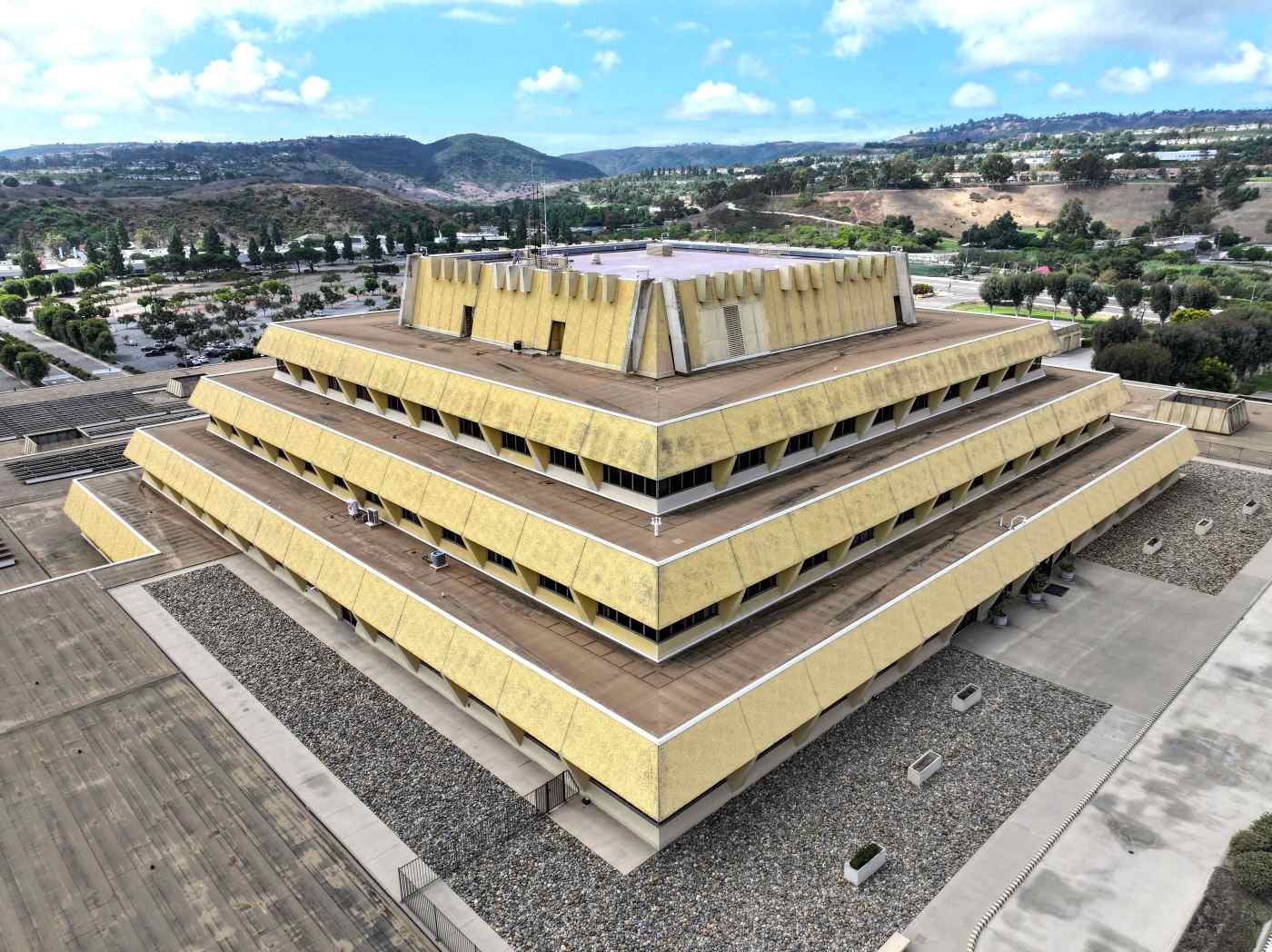A U.S. government agency has canceled the sale of the iconic Ziggurat federal office building in South Orange County to the original auction winner and awarded it to Hoag Memorial Hospital Presbyterian, which had submitted the second-highest offer, Hoag and the other bidder said Wednesday, April 2.
Hilco Development Services of Long Beach, which made the winning $177 million bid last fall, issued a statement Wednesday saying the General Services Administration decided last month to rescind its purchase after Hoag sought an injunction to stop the sale.
In its own statement Wednesday, Hoag reported the GSA awarded the auction to the hospital.
“We are thrilled at the prospect of moving forward and the potential this opportunity holds for Laguna Niguel and surrounding communities,” the hospital statement said.
A spokesperson for the GSA declined to comment or to confirm that the sale had been rescinded. Nor would the spokesperson say whether Hoag would be able to buy the Ziggurat.
Hoag had complained in its lawsuit that a Hilco partner violated terms of the auction by seeking to collude on the price of the sale.
Hilco argued in court filings that no collusion occurred and that nothing improper took place during the auction.
Hilco attorney Todd Theodora said in a statement that the firm will challenge the GSA’s decision, saying the firm “is confident that, ultimately, the GSA will be held to its original determination.”
The GSA had been seeking to sell the 90-plus acre parcel in Laguna Niguel and its 1 million-square-foot stepped tower designed more than 50 years ago by William Pereira, the architect behind San Francisco’s Transamerica Pyramid and the UC Irvine campus.
Officially the Chet Holifield Federal Building, the tower was once home to numerous U.S. government offices, but was largely vacant when put up for auction.
The GSA originally required bidders to preserve the tower, which resembles the ziggurats of ancient Mesopotamia, but didn’t get any offers.
After dropping the requirement to keep the building intact, three bidders took part in the subsequent five-month auction that ended Oct. 24 with Hilco, a fledging developer, making the high bid. In court filings, Hilco said it planned to replace the building with homes and commercial spaces.
But Hoag, which had bid $300,000 less than Hilco’s $177 million winning offer, sued in federal court in November seeking an injunction to stop the sale.
The Newport Beach-based hospital alleged Hilco partner Jeff Pinter emailed Hoag’s board chair-elect during the auction suggesting that Hilco and Hoag “work together instead of against each other.”
Pintar invited Hoag to “sit and make a deal” to bring the auction to an end, the hospital chain said in its lawsuit.
“Hoag, realizing the impropriety of the collusion request, refused the improper overture,” the lawsuit stated. “Hoag expressed concern that the communication from Pintar constituted an attempt to restrict competition or influence the submission of offerors.”
The GSA notified its Inspector General’s office, which opened an investigation into Hoag’s claim.
The court file includes a subpoena from the U.S. Justice Department’s antitrust division seeking Hoag’s documentation on the auction and communication between bidders.
In its own court filing, Hilco’s attorney argued that Pintar violated no law and that no collusion occurred. Neither Hilco nor Hoag was aware of how much the other party was willing to pay for the Ziggurat, the filing said.
“This sale was the product of a full and fair bidding process, in which no bidder attempted to influence the bids or final sale price,” Hilco’s filing said.
Initially, the GSA rebuffed Hoag’s request that it halt the sale, saying an injunction would be improper and that there were other ways for Hoag to protest the sale.
Hilco partners were at a loss to explain why the GSA made an about-face on the sale, blaming it on “legal shenanigans” by Hoag’s attorneys.
Staff Writer Erika I. Ritchie contributed to this report.
